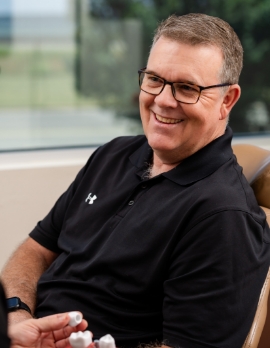
Exposure and Bond Surgery
Play Video
Exposure and Bond Surgery
After Impacted Tooth Exposure
Following surgery, try not to disturb the wound. You may have surgical packing in place to keep the tooth exposed. Do not bother the packing, but also do not worry if it falls out on its own.
Bleeding
For the first 24 hours following surgery, you may experience minor bleeding or red saliva. If you have excessive bleeding, bite down on a piece of gauze for half an hour. Ensure the gauze pad is placed directly over the incision site and replace it when saturated. You may remove the gauze permanently once the bleeding stops, but if the bleeding persists, contact our office for assistance.
Swelling
Swelling is a normal occurrence after surgery, and the best way to control swelling is by applying ice to the affected side of your face. For the first 36-48 hours after surgery, continuously use ice as much as possible while awake. After 48-72 hours, we recommend applying heat therapy on the cheeks with a gentle massage 3-4 times daily to help further reduce swelling and soreness.
Diet
Drink plenty of fluids and avoid hot foods and beverages. On the day of surgery, stick to soft foods and liquids, then advance to a regular diet as soon as you feel comfortable doing so. If a gold chain or other hardware was connected to your impacted tooth, clean and rinse the area after each meal to promote healing and avoid infection.
Pain
We recommend beginning any prescribed pain medications before your numbing medicine wears off.
If you experience mild to moderate pain, you may take 1-2 tablets of Tylenol® or Extra Strength Tylenol® every 6 hours. Ibuprofen (Motrin® or Advil®) can also help control pain, swelling, and inflammation. Ibuprofen generally comes in 200mg tablets; your doctor may suggest a 600mg dosage every 6 hours or an 800mg dosage every 8 hours.
Your doctor may prescribe narcotic pain medications for more severe pain. Narcotic pain medications can cause you to feel groggy, and they may also slow your reflexes. We recommend not driving, operating machinery, or drinking alcohol when taking narcotic pain medicines.
Following 72 hours after surgery, pain should become less and less pronounced each day. If discomfort persists or intensifies, contact your surgeon.
Oral Hygiene
A clean mouth is an essential part of the healing process. Beginning the day after surgery, clean your mouth after every meal. Brush your teeth and wash your mouth with a warm saltwater mix. Use this mix 3 times a day until your mouth fully heals.
If your orthodontist connected a gold chain or other hardware to your impacted tooth, you should clean and rinse the area daily to promote healing and avoid infection.
Activity
We advise keeping physical activity to a minimum the day after your surgery. Physical activity may result in bleeding or throbbing. Start with light exercise, and then proceed to regular activity as tolerated.
